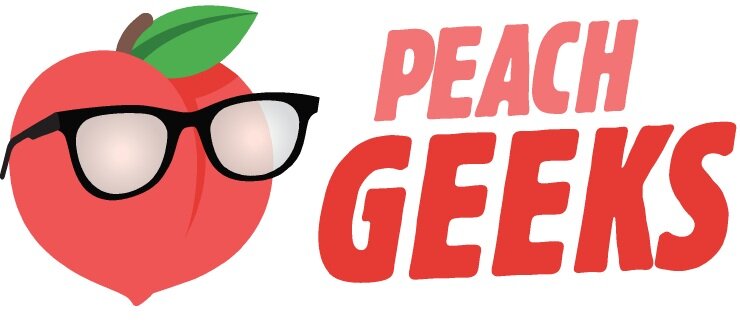Kubo and the Two Strings
- Release Date: August 19, 2016
- Rating: PG
- Directed by: Travis Knight
Starring: Art Parkinson, Charlize Theron, Matthew McConaughey, Ralph Fiennes, Rooney Mara and George Takei
"If you must blink, do it now." The film opens with these arc words, echoing them throughout the film. It isn't just the cold-open that Kubo employs when telling his stories. This is the director and animators telling us to get ready, because we're going to see something spectacular.
Kubo is the fourth film outing by stop-motion studio Laika, the producers responsible for Coraline (2009), ParaNorman (2012), and The Boxtrolls (2014). The Boxtrolls was an under-appreciated delight. ParaNorman, while not my personal favorite, is well regarded by a lot of fans. To me it boasts one of the coolest scenes ever seen in stop-motion. Coraline stands apart however, being one of my favorite films from the studio and one of my favorite movies of all time. Needless to say, I'm a big fan of what Laika offers, and I was excited about Kubo and the Two Strings from the minute I first saw the trailer.
Kubo (voiced by Art Parkinson) lives with his mother in the caves overlooking a small village in Japan. His mother is afflicted with an illness that leaves her comatose throughout the day, and Kubo provides by visiting the village telling stories using origami and his shamisen, a guitar-like instrument. The entire village is entranced by Kubo's narratives, as he weaves tales using magic and music to make his origami figures fight and fly before their very eyes. Unfortunately, Kubo stays out after dark against his mother's express rules, and he is attacked by the Sisters (Rooney Mara), his evil aunts who are trying to steal his one remaining eye for his grandfather, the Moon King (Ralph Fiennes). After being saved by his mother, Kubo must go on a quest to recover three magic items in order to protect himself from the Moon King. With the help of the practical Monkey (Charlize Theron) and a forgetful warrior named Beetle (Matthew McConaughey), Kubo travels land and gorgeously rendered sea to find the magic items and face off against his grandfather. Also, George Takei is in it, but barely.
If this movie will be remembered for something for years to come, it will be for setting the bar for stop-motion and artistic direction higher than any previous film. Kubo offers one of those rare moments that becomes rarer and rarer in a world of saturated CGI: pure unadulterated wonder. Animation fans like myself will get distracted at times thinking "how did they do that?" while those who don't care will still stare in awe at the scene painted before them on screen.
Kubo is supported by an impressive voice cast, led by Art Parkinson doing a fantastic job in the lead roll. Charlize Theron mixes emotion with intensity and gives a very strong performance (one viewer likened it to Gillian Anderson's voice-over work for Moro the wolf goddess in Princess Mononoke). Matthew McConaughey does a fine job, but I feel that some of the more comedic parts of his character may have been lost on him. The stand-out voice work, alongside Parkinson, definitely goes to Rooney Mara and Ralph Fiennes. Mara's Sisters are incredibly creepy and threatening, but it's Fiennes that steals the show during his brief appearances. He transitions between his character's emotions flawlessly, and his cold fury here impresses me a lot more than some of his pervious villain work (Harry Potter included).
The story is probably the weakest aspect of the film, but not enough to take away from the overall experience. The story is a little unfocused at times, but Kubo's plot is essentially the Hero's Journey. The film is, strangely enough, not about "finding yourself" or "being who you are," which is the usual safe-zone that most family films find themselves in. Rather, it's a film about family, loyalty, and the power of stories themselves and how they shape our very identities (Neil Gaiman must have gotten a kick out of this movie).
Laika has a very slow pace to their films, and whether it's because of the nature of stop-motion or an artistic or directorial choice, it's something that a lot of modern audiences are not used to. As our world's attention spans grew shorter, movies sped up their pace to keep up. But Laika keeps things at an even keel. It reminds me of the films by Studio Ghibli, where Miyazaki takes his time with the characters and scenery, moving the story along at its own pace. My initial fear was that younger children might become bored with the pace, but we saw the film during a filled matinee with lots of young children and they all seemed entirely engrossed.
The previews before Kubo showed an unending barrage of animated trash, filled with bored celebrity voices cracking lame quips amid a flurry of confusing, hyperactive color and images in the hopes of keeping some hypothetical child's attention. These so-called "family films" are usually financially successful but have very little substance behind them. Meanwhile, Kubo, like the Laika films that came before it, will most likely flounder in the box office and then lose the Oscar for Best Animated Feature (to a well-deserved Zootopia, but not because it should win, but because the Oscar voters don't care about animated films). This is why I'm encouraging you to take your loved ones and/or children out to see this film and to support further endeavors like this. A movie like this will have a longer-lasting impression on a child's imagination than almost anything else out there.


